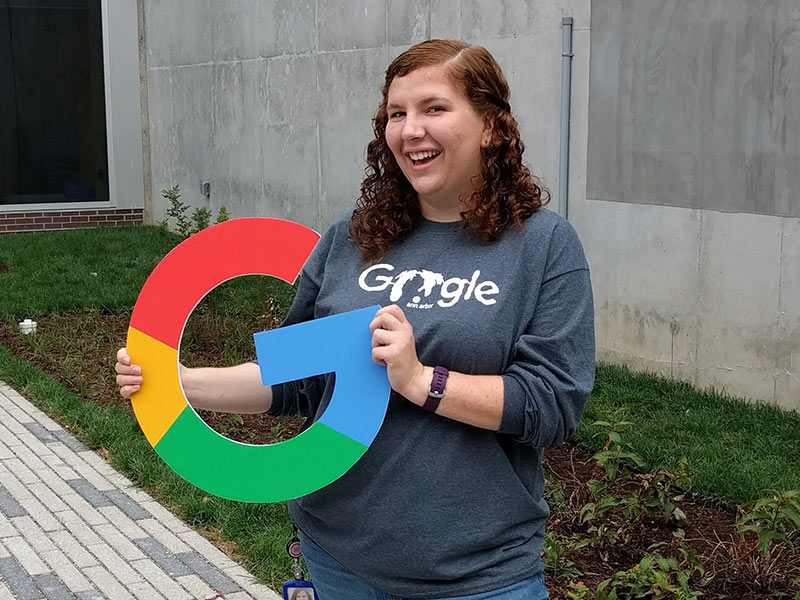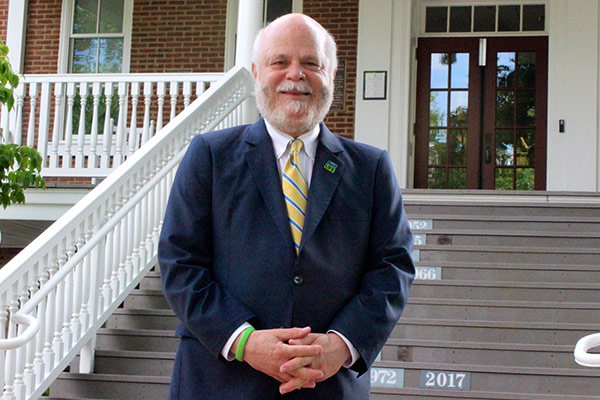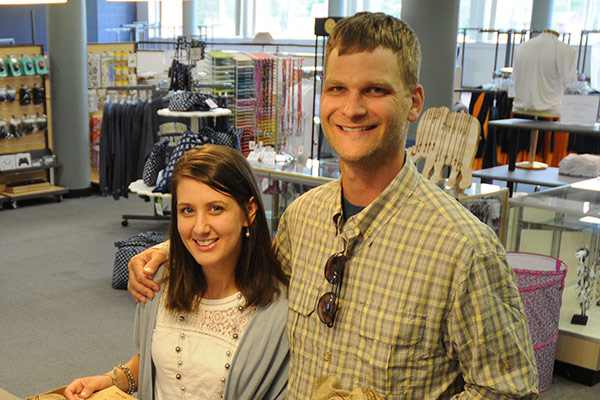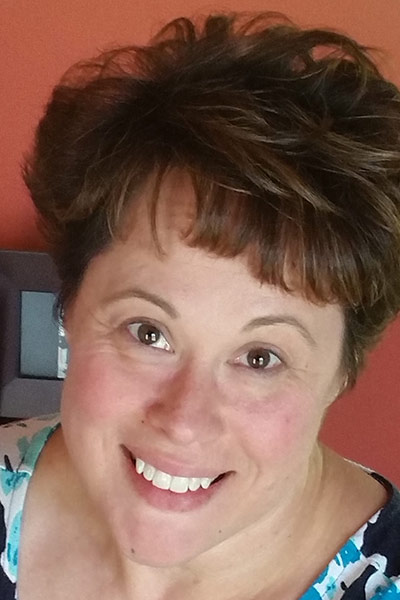
Get a Jump on Your Career Quest
Apply online and begin your next chapter.
Tour campus, meet with admission staff and get to know Juniata.
Identify your passions, explore endless opportunities, and design your own education.
Explore Juniata’s campus with our virtual tour.
Meet your admission counselor in your area.
Uncertainty. Life-altering choices. Anxiety. When it's time to choose a college, wouldn't it be great if you knew every decision you had to make was spot-on?
There are no guarantees (sorry), but, for a lot of reasons, that's okay.
The whole point of college is to explore, and come to know yourself in ways that reveal your interests and purpose. And, it's what a college like Juniata is all about.
Here, students get to design their own education. With advice from two—yes, two—academic advisers, students build a personal Program of Emphasis (POE). The POE is a vigorous, challenging, yet fluid plan of educational action that enables students to evolve their thinking and align their interests with emerging (or traditional) career opportunities. Our students graduate well-prepared for the workplace and earn the early respect of employers, too.
Related Content
While some colleges let you adjust your major in some way, the process at those institutions is often complicated—unlike the flexibility you’ll experience at Juniata. Here, designing your own education is core to our academic model. It’s how we think about you—and how we want you to think about yourself and your future.
The Program of Emphasis (POE) model comes in three flavors:
Sure, we have traditional-looking programs if that’s what you need. But it doesn’t stop there. Here, it’s all about what’s right for you.

Howard Nathan ‘75
POE: Sociology
CURRENT CITY: Philadelphia, Pa.
“I was always interested in what I call 'the sociology of medicine,' and that was the name of my senior paper. I worked at a hospital in Johnstown, Pa., for three summers. That experience helped me understand the importance of dealing with people with empathy and sensitivity.”
“I learned how to run an electron microscope at Juniata and worked in a lab, and that got me a job in Philly—my first job.”
“I was hired by transplant surgeons who did kidney transplants. My job was to evaluate people who could be donors and then speak to the family and ask consent. After this, we would proceed to the operating room and I would assist the surgeons in the operating room and be responsible for their transport to the transplanting center.”
“When I got this job at Delaware Valley, part of my learning was about how to treat people. I had to approach families who were losing a loved one. My experience as a kid losing loved ones, working in hospitals, and in college all contributed to that. I combined the concepts of sociology and medicine at Juniata, which helped me in my career.”

Nate '05 and Stacey '05 Freitag
POEs: Citizenship Education and Business Communication
CURRENT CITY: Belleville, Kan.
“I'd never in a million years have guessed I’d be a business owner—especially related to popcorn! Without Juniata, it wouldn’t have been possible.”Stacey Freitag
“After Nate and I married in 2006, we stuck around town and made Huntingdon our home. Nate taught social studies at the high school and I worked in the marketing office at the hospital. We loved keeping in touch with Juniata as Nate would teach the children of former professors and I would work with students that volunteered at the hospital.”
“Nate is originally from the Midwest. In 2013, we moved back so Nate could help out on his family’s farm. In addition to traditional crops of corn and soybeans, Nate’s dad grew popcorn. We fell in love with the freshness of that popcorn. With Nate and his father’s knowledge of growing popcorn, and my education in business and background in marketing, we’ve turned this love of farm-fresh popcorn into a business.”
“My customized POE made me well equipped for so many things. After college, I worked for a startup healthcare company and an engineering firm in the marketing side. I worked at a hospital for five years, doing marketing and community health outreach. That was all before Nate and I started our business. Then, having studied marketing, art, and design, I was well prepared for so many business-related areas, from designing the packaging for our popcorn to creating and managing a website. Even my accounting studies at Juniata paid off, now that I’m running a business.”

Lisa (Kotary) van Luvanee ‘90
POE: Psychology
CURRENT CITY: Philadelphia, Pa.
“Juniata is the single best decision I ever made, other than my husband. My international business mentor at Juniata made me justify every class I wanted to take. He was fantastic. He helped me figure out that I wasn’t happy with what I was doing—that if international business wasn’t for me, it wasn’t. And together we determined that it made sense to make psychology my POE.”
“I took a lot of psychology, a lot of statistics, and linguistics, so I would be well prepared to enter academia. I was really well-suited to go to graduate school because I had such a strong background at Juniata. I’d done my own independent research as an undergraduate, so I was able to start as a graduate student doing research instead of as a teaching assistant. I went on to Syracuse University for my masters and Ph.D. in cognitive development.”
“I went from mastering regulatory affairs for pharma companies—helping them get their products registered in the U.S., filing with the FDA—to working at a very small company whose mission is to help small pharma companies do exactly the same thing. I help companies design clinical trials to show that drugs are safe and effective.”
“Juniata taught me one of my most valuable skills: critical thinking. If I hadn’t learned what I did at Juniata, I wouldn’t be able to do my job. Every single day, I do things that I learned at Juniata. And, because of that education, we’ve helped small companies solve problems.”
Juniata College
1700 Moore Street
Huntington, PA 16652
Juniata College
1700 Moore Street
Huntington, PA 16652